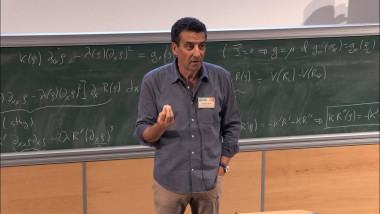Appears in collection : 2016 - T1 - WS2 - Fundamental inequalities and lower bounds theme
Distributed storage systems (DSSs) store large amount of data and make it accessible online, anywhere and anytime. To protect against data loss, the data in DSSs is stored redundantly, either by replication, or erasure codes as recently introduced into Facebook and Microsoft clouds. In this talk, I want to highlight the tension between security and reliability in DSSs, especially when erasure codes are used to save storage space. This tension is the consequence of the dynamic nature of these systems in which nodes are frequently leaving or joining the system. This leads to a continuous exchange of data in the DSS to maintain the same redundancy level. Unfortunately, this makes the DSS more vulnerable to eavesdropping and malicious attacks. Classical solutions, such as Shamir’s secret sharing, are broken here and cannot achieve security. I will focus on achieving information theoretic security of data in DSSs, and describe on-going efforts for characterizing the fundamental limits of security in DSS. I will present bounds on the secure capacity, i. e. , the maximum amount of information that can be stored securely in the system, and describe secure code constructions that can achieve these bounds in certain regimes. I will conclude with a discussion on the numerous open problems and challenges in this area.
















